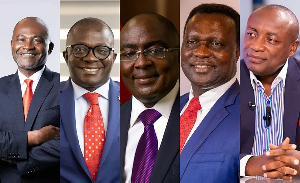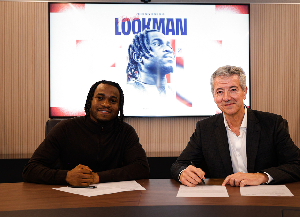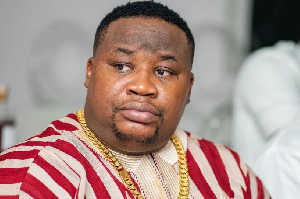Part I
By Dr. Michael J.K. Bokor
E-mail: mjbokor@yahoo.com
Thursday, December 22, 2011
Events characterizing elections in Ghana reveal that the Volta Region has been a no-go area for the political parties rooted on the Danquah-Busia political tradition since 1948 when elections became the means for choosing our national leaders.
From the 1st Republic through the 2nd, 3rd, and 4th, the electorate in the Volta Region have consistently denied any political party based on the United Party’s ideals the votes it direly needs to enjoy overwhelming support throughout the country.
For example, Busia’s Progress Party did not win a single Parliamentary seat in the August 1969 elections nor did Victor Owusu and his Popular Front Party get the goodwill of the Voltarians. Although Kufuor’s NPP won the Nkwanta North constituency in 2004/2008, that singular achievement doesn’t represent any significant forage into the Volta Region. We can’t use it as a reliable indicator of a positive change for the UP family. Why is the Volta Region not favourably disposed toward the “Mate Me Ho” political family?
It is so, not necessarily because of the negative fallouts of Victor Owusu’s infamous gaffe that “Ewes are inward-looking” or because of the Apollo 568 episode (massive dismissal of civil servants, mostly of Ewe ethnic extraction). There must be a more serious underpinning web of factors to explain this dislike. The NPP’s organizers must know this fact to be able to untangle the knot.
They are certainly hard pressed to do whatever they can to change the trend. That is why Ken Anku, the party’s parliamentary candidate for North Dayi, has asked the party not to give up hopes of winning more votes in the Volta region in next year’s elections (myjoyonline.com, Dec. 10, 2011).
According to him, it should not be difficult for the party to make inroads into the Volta Region once the party works extremely hard to gain the confidence of the people. Speaking on Multi TV’s “Minority Caucus” program, Mr. Anku noted that the disappointing performance of the incumbent NDC government in the region and the treatment being meted out to former President Rawlings by the party, could be to the NPP advantage if it perseveres and works hard to woo voters in the region to their side.
Even before the NPP’s activists have time to undertake any massive campaign in the Volta Region, snippets of information indicate that whether it is by accident or design, several events are beginning to sound alarm bells that must frighten the NDC’s overly complacent organizers.
The Volta Regional House of Chiefs (VRHC) has taken the lead to urge citizens of the area to change their one-sided voting pattern by being more open-minded. It believes the Region has lagged behind in terms of development because of poor electoral choices. The VRHC noted that over the years, most Voltarians have voted for party flags and not the personality wielding the flag (PeacefmOnliune, Dec. 14, 2011).
These were the sentiments expressed by the chiefs at their annual general meeting at Ho recently. Among others, that meeting was used to urge political parties to be more committed to the region than themselves and their parties.
The tone was set by Togbe Afede XIV, President of the VRHC, who explained that the meeting was intended to afford the political parties and chiefs a platform to deliberate on the 2012 general elections and the quality of candidates presented by the various parties in the region.
He refuted allegations that chiefs from the region were biased toward certain political parties, taking sides in previous general elections, or aiding electoral malpractices. The meeting was to assure the various political parties in the region of a level playing field in next year’s polls.
Osie Adzatekpor of the Avatime Traditional Area couldn’t have said it better that “Peace is the desire of our people and we, as chiefs, will play neutral roles to ensure free, fair and peaceful elections.” But, perhaps, his most intriguing disclosure concerned a banner at Juapong, which said that the Volta Region, the “World Bank” of the NDC would be turned into a “Rural Bank.”
To him, such a banner was not only derogatory but it could also create tension among the people. Then, the Osie urged citizens of the region to reject the “World Bank” title by demonstrating to the rest of the country that they do not belong to any particular political party.
Nana Soglo Allo of the Soglo Alloh of Likpe Traditional Area and Vice President of the VRHC urged all parties to present their policies and programs for thorough examination by the people in order for them to make informed choices during the election and not “World Bank” choices.
The Paramount Chief of Ziavi Traditional Area, Togbe Korku Ayim IV, stressed that it is high time citizens in the region changed their voting patterns and choices by being more open-minded.
As would be expected, the NPP Regional Secretary, Kofi Boateng, commended the chiefs for their initiative and development exploits with China adding “this is what the people need from us as leaders…this is also what the NPP stand for, to ensure that all Ghanaians get equal and adequate opportunities to succeed.”
Surprisingly, out of all the political parties invited, only the New Patriotic Party (NPP) honoured the invitation. Even the NDC, which considers the Volta Region as its most trustworthy bastion of support, failed to do so.
The sentiments expressed by the Volta Region chiefs are noteworthy. Taken together with others coming from the electorate in the Volta Region, we can infer that a kind of awakening is taking shape to either put pressure on the Mills government to implement policies and programmes to develop the Volta Region or risk losing support from there. It may be either a genuine demand for the Region’s fair share of the national cake or a plain case of blackmail. Call it whatever you may, this open expression of sentiments has dire implications. Others elsewhere should pick up this thread.
I will be extremely happy if these sentiments run through the entire social fabric of the country for the electorate to base their political decisions on issues, not mere personalities or ethnic considerations. What this admonition entails is far-reaching. It suggests that the tendency to blindly follow political parties en bloc doesn’t only portray the negative herd mentality that won’t refine our democracy but it also suggests that our politics is being geared toward being based on nothing but issues.
This shift in position is good for the country because it has many advantages. It will reduce to absurdity the existing taken-for-granted impression—which creates complacency and impunity among the leadership of the beneficiary political parties—that they can always rely on the unalloyed support of those in the so-called strongholds to swagger their way through to electoral victory and then fumble and bumble, only to return there at election time for their mandate to be renewed without question.
It will also create conditions for our partisan politics to be viewed from a national perspective and not that of ethnicity or region. Of course the latter can’t be completely eradicated, but it will be toned down upon for the good of social relationships. There is too much acrimony in our national politics.
The overarching imperative, then, is that any political party that wins power should serve the people without pinpointing any particular segment to pin hopes on for survival or for preferential attention in the distribution of the national cake. The complaints that have come from certain regions to indicate that they were being denied development projects (or that those in progress before the Mills government took office have been abandoned) because of their perceived anti-NDC stance will no more be at issue. The government will be forced to serve all indiscriminately and not count on voter sentiments in specific so-called strongholds. Performance should be the yardstick, and that’s the new message to be gleaned from the sentiments coming from the Volta chiefs.
Continued in next installment…
Opinions of Saturday, 24 December 2011
Columnist: Bokor, Michael J. K.














